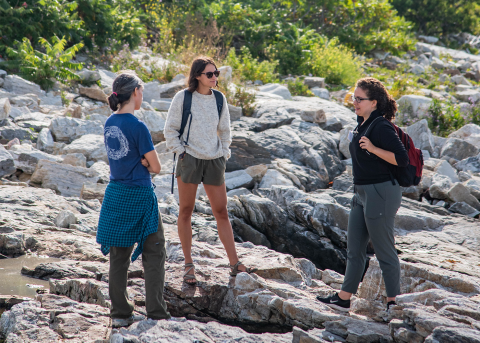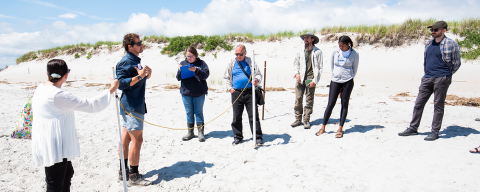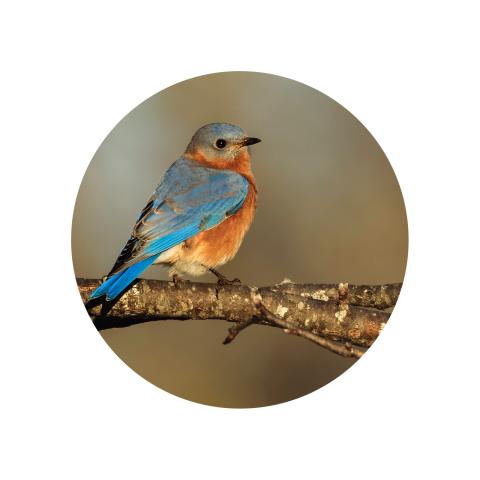Coastal Collaborations
Water from the Piscataqua River travels down past Portsmouth at four knots and enters the Atlantic Ocean off the rocky shores of New Castle. All that water rushing to meet the sea flows from more than just neighboring towns — the land area from which water drains into the river, known as the Piscataqua Region Watershed, is over a thousand square miles.
This water also carries sediments, nutrients and wildlife with it. Toss a stone into any one point in this watershed, which reaches west to Candia and north to Brookfield, and its ripples will spread throughout fifty-two communities in New Hampshire, Maine and Massachusetts.
Understanding the connections in a watershed is critical to understanding its functions and its challenges, and the same is true of the connections between the people and organizations working on the watershed. Siloes can lead to unintended consequences, so it becomes important to create collaboration across municipal boundaries, states and waterways.
CoastWise, a program run by New Hampshire Sea Grant and UNH Cooperative Extension, fosters collaboration by bringing together a diverse cohort of coastal resilience and marine resource management researchers, practitioners and students.
What sets CoastWise apart from a conference or networking event is its depth, length and the diversity of its participants’ backgrounds. The program consists of immersive, multiday workshops with a cohort over a year. While early-career professionals have an obvious need for networking opportunities, midcareer professionals can benefit just as much from connecting across siloes. Inclusivity has been important from the start, says climate adaptation program manager Lisa Wise of UNH Extension and Sea Grant.
“We really wanted to bring everyone together in the same cohort. We didn’t want a program for grad students, and a separate one for faculty, and another for practitioners. It’s everyone in the same group,” she says.
CoastWise took inspiration from a Louisiana Sea Grant program, expanded the scope of participants and tailored it for N.H. Led by Wise and Sea Grant associate director Lindsey Williams, the program welcomed its third cohort in summer 2023.

Autumn Scott ’21 G’23 from the Strafford Regional Planning Commission was a member of the second cohort. As a regional planner, her role is deeply network-based, requiring coordination, planning and grant writing across several municipalities and state agencies. Scott didn’t grow up on the Seacoast and was interested in extending her network beyond UNH.
“I’m very much not the person to go up and introduce myself at a conference,” she says. It was helpful for her to have a facilitated space where she was encouraged to meet new people.
This kind of facilitation is the core of CoastWise – participants are encouraged to find what they already have in common and learn ways they can work together to bolster the region’s resilience.
“My favorite part of CoastWise has been the idea incubator,” says Scott. “There are so many different fields of expertise and areas of interest in the group that it really allowed for some interesting cross-pollination of ideas. I definitely took things out of CoastWise that I’m weaving into new project developments now.”
For Wise and Williams, this cross-pollination has been the goal. There are many people pouring their efforts, dollars, time and expertise into stewarding the region’s rivers, coasts, estuaries and the ocean. Residents and visitors alike depend on these resources for drinking water, recreation and food.
“We’re hoping that this program will result in better proposals and projects and a stronger, more connected workforce supporting a resilient coast,” says Wise.

